Postgraduate in Small Animal Oncology
Obtain your credential - PgCert. Onco. ifevet
Postgraduate in Small Animal Oncology
Obtain your credential - PgCert. Onco. ifevet
Start date
15th March 2025
Timetable
Saturday from 9:00 to 18:30 Sunday from 9:00 to 14:30
ECTS Credits
30 ECTS credits
Number of modules
12 modules
Modality
Streaming
Number of students
36 students
Start date
15th March 2025
Timetable
Saturday, 9 to 18:30 Sunday, 9 to 14:30
ECTS Credits
30 ECTS credits
Modules
12 modules
Modality
Streaming
Number of students
36 students
- Description
- Speakers
- Programme
- Pricing
Certification obtained
After passing the postgraduate university training, you will be able to obtain the following credentials to use in your CV:
• International Credential: PgCert. Onco. ifevet
• Certification obtained: Postgraduate Certificate in Small Animal Oncology (ifevet)
Course Objective
The aim of this postgraduate programme is to provide students with a solid foundation in diagnosing and treating the most common oncological diseases encountered in small animal veterinary clinics. The primary objective is to equip students with confidence in managing neoplastic diseases through contemporary, evidence-based approaches.
Structure and benefits of the postgraduate program
The postgraduate course is structured into modules with classes designed to introduce students to the basics of oncology. Each module will be taught by one or more qualified or accredited specialists or residency-trained clinicians in their respective fields (oncologists, surgeons, pathologists, radiologists), ensuring that students receive the most up-to-date and highest quality training in the ever-evolving field of veterinary oncology.
The first four modules cover cancer biology, paraneoplastic syndromes, and an overview of the diagnostic and treatment options available. The remaining eight modules focus on the types of neoplasia commonly seen in everyday practice.
Students will learn about the biology, differential diagnosis, diagnostic approaches, and treatment options for the diseases discussed.
Target Audience
This programme is aimed at veterinary surgeons working in general practice as well as more experienced vets in oncology clinics who wish to deepen their knowledge in clinical oncology. It is also intended for veterinary surgeons who aspire to pursue a career in veterinary oncology through an internship or residency in the future.

Petros Frezoulis
RCVS and EBVS® European Veterinary Specialist in Small Animal Oncology, DVM, MSc, DipECVIM-CA (Oncology), MRCVS Director of postgraduate Oncology course

Konstantinos Rigas
DVM, MSc, Dip ECVIM-Ca(Onc) MRCVS, EBVS® European Veterinary Specialist in Small Animal Oncology

Andy Yale
BVMedSci (Hons) BVM BVS (Hons) PGCertVetEd PGDipVCP MVetMed DipECVIM-CA (Oncology) FHEA MRCVS, EBVS® European Veterinary Specialist in Small Animal Oncology

Matteo Rossanese
DVM SPSA CertAVP MSc, Dip. ECVS, PGCertVedEd FHEA, MRCVS, EBVS®and RCVS Specialist in Small Animal Surgery
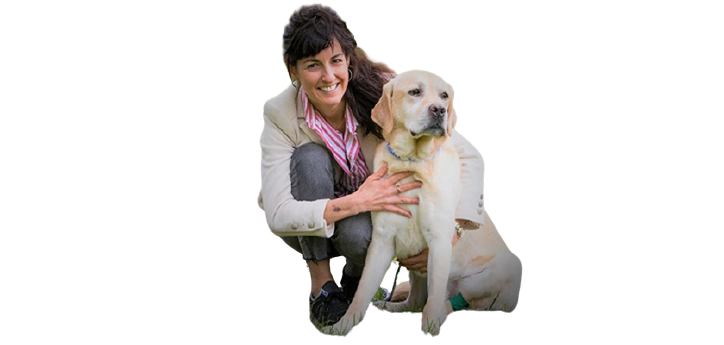
Ane Uriarte
DVM, MRCVS, DipECVN, EBVS® European Specialist In Veterinary Neurology And RCVS Specialist In Veterinary Neurology
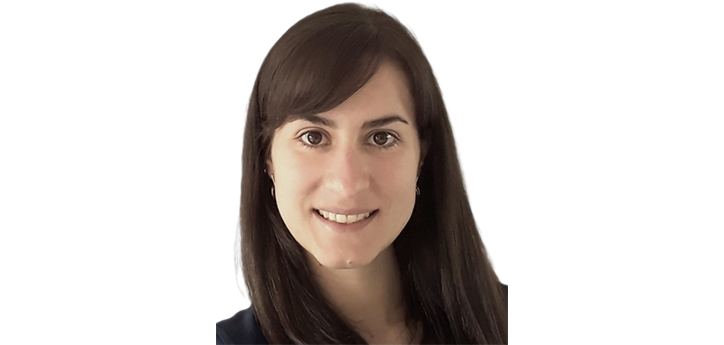
Sandra Guillén
DVM DipECVIM-CA (Onc) PGCert (VetEd) FHEA MRCVS RCVS & EBVS® European Veterinary Specialist in Small Animal Oncology

Matthew Gurney
BVSc CertVA DiplECVAA FRCVS EBVSTM European Specialist in Veterinary Anaesthesia & Analgesia
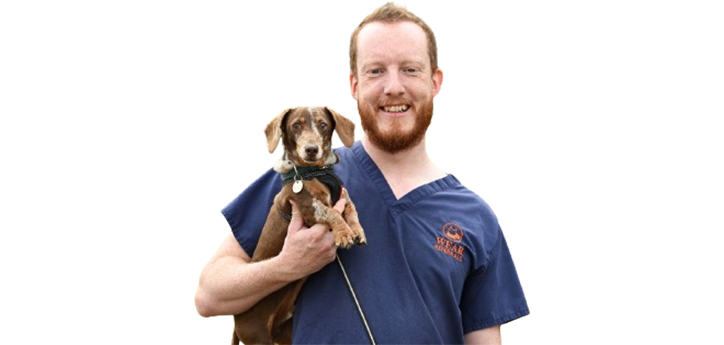
Aaron Harper
MA VetMB CertAVP (SAM) PGCME(Onc) DipECVIM-CA (Onc), MRCVS RCVS, RCVS and EBVS European Veterinary Specialist in Small Animal Oncology, Head of Oncology, Wear Referrals
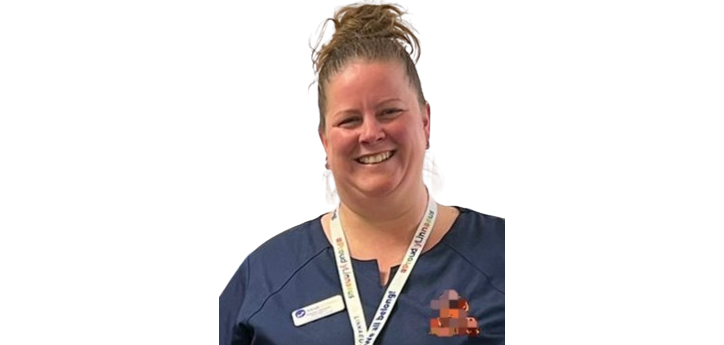
Slavomira Necova
MVDr, DipECVIM-CA (Onc), MRCVS, RCVS and EBVS European Veterinary Specialist in Small Animal Oncology

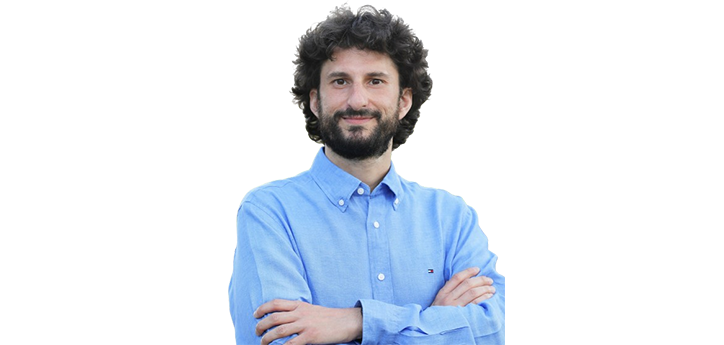
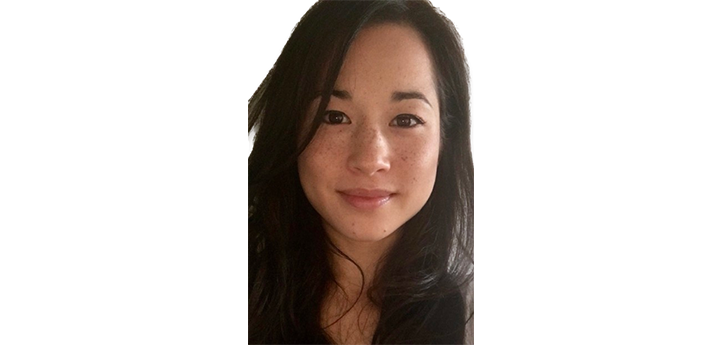
Jesica Sumping
BVetMed, DipECVDI, AFHEA, MRCVS, RCVS and EBVS European Specialist in Veterinary Diagnostic Imaging

Sarah Mason
Dip ECVIM-Ca (onc), EBVS® European Specialist in Oncology and Radiation Oncology



Rachel Pittaway
BSc (Hons) BVSc MVetMed DipACVP MRCVS, Head of Anatomic Pathology, RCVS Specialist in Veterinary Pathology (Anatomic)
Date: 15th March 2025
Modality: Streaming
Competencies and objectives:
- Understand tumour biology by examining the cell cycle, the metastatic process, and tumour progression.
- Understand the importance of oncogenes and tumour suppressor genes.
- Understand the hallmarks of cancer.
- Recognise the importance of neutering status in the development of neoplasia
- Identify chemical, genetic, environmental, and viral factors in the development of neoplasia.
- Diagnose and treat paraneoplastic syndromes.
Module Summary:
- Cancer biology and cell cycle.
- The hallmarks of cancer.
- Paraneoplastic syndromes.
- Chemical, genetic, environmental, and viral factors in the development of neoplasia.
Speaker: Sandra Guillén
Date: 16th March 2025
Modality: Streaming
Competencies and objectives:
- Preparation of cytology samples.
- Understand the main features of malignancy in cytological samples.
- Distinction between epithelial, mesenchymal and round cell neoplasias.
- Understand what margins represent and what is considered a clear or dirty margin.
- Understand the cytological and histopathological reports and know the features that should be included in each report.
Module Summary:
- Clinical pathology: Sample collection and smear preparation, the complete cytology report.
- Clinical pathology: Identification of different cell lines, distinction between neoplastic and non-neoplastic conditions.
- Clinical pathology: Cytology of the most common cutaneous and lymph node pathologies.
- Clinical pathology: Cytology of the most common epithelial and mesenchymal pathologies.
- Anatomic pathology: Sample collection and sample preparation, immunohistochemistry stains.
- Anatomic pathology: The importance of margins in clinical oncology, understanding the histopathology report.
Speaker: Ioannis Oikonomidis, Rachel Pittaway
Date: 12th April 2025
Modality: Streaming
Competencies and objectives:
- Know the most commonly used chemotherapy drugs and their mechanism of action.
- Management of the chemotherapy side effects.
- Know the most commonly used multi-agent chemotherapy protocols.
- Understand the principles of metronomic chemotherapy and tyrosine kinase inhibitors.
- Understand the principles of radiation therapy and the most commonly treated neoplastic conditions.
- Understand the principles of electrochemotherapy, immunotherapy and interventional radiology.
Module Summary:
- The principles of chemotherapy and the mechanism of action of chemotherapy agents.
- The management of chemotherapy related side effects.
- The principles of radiation therapy.
- Examples of neoplastic conditions treated with radiation therapy.
- The use of metronomic chemotherapy and tyrosine kinase inhibitors in the clinical setting.
- The use of electrochemotherapy, immunotherapy and interventional radiology.
Speaker: Sarah Mason, Konstantinos Rigas
Date: 13th April 2025
Modality: Streaming
Competencies and objectives:
- Understand the different techniques in the surgical removal of cutaneous masses.
- Understand the use and the techniques for sentinel lymph node mapping
- Commonly used reconstruction techniques.
- The clean and dirty margins from the perspective of the clinician.
Module Summary:
- Antiseptic techniques in general practice/Preparation for a surgical procedure.
- Levels of excision of neoplastic diseases.
- Reconstructive techniques.
- Sentinel lymph node mapping.
- Excision of lymph nodes/description of techniques for the superficial lymph nodes.
- Case examples for cutaneous and abdominal masses.
Speaker: Matteo Rossanese
Date: 10th May 2025
Modality: Streaming
Competencies and objectives:
- Understand the principles of radiographs, ultrasound, CT and MRI
- Select the right imaging technique for individual patients.
- Identify normal vs abnormal finding.
Module Summary:
- The principles or radiographs, ultrasound, CT and MRI.
- Thoracic radiographs.
- Abdominal radiographs.
- Ultrasound.
- CT and MRI.
Speaker: Jessica Sumping
Date: 11th May 2025
Modality: Streaming
Competencies and objectives:
- Understand the biology, staging and treatment options for mast cell tumours in dogs and cats.
- Understand the usefulness of immunohistochemical stains in dogs with mast cell tumours.
- Understand the use of radiation therapy and chemotherapy in the adjuvant setting.
- Understand the biology, staging and treatment options for soft tissue sarcomas in dogs and cats.
- Understand the biology, staging and treatment options for other cutaneous tumours in dogs and cats.
Module Summary:
- The diagnostic approach for dogs with mast cell tumours.
- Treatment options for dogs with mast cell tumours.
- Mast cell tumours in cats.
- Soft tissue sarcoma in dogs.
- FISS in cats.
- Other cutaneous tumours in dogs and cats.
Speaker: Charlie Pittaway
Date: 7th June 2025
Modality: Streaming
Competencies and objectives:
- Understand the biology, staging and treatment options for lymphoma in dogs and cats.
- Understand the use of molecular techniques and immunohistochemistry for the diagnosis of round cell tumours.
- Understand the differences in prognosis and treatment between the different anatomic location.
Module Summary:
- Biology, diagnosis and staging of lymphoma in dogs.
- Treatment of canine lymphoma.
- Biology, diagnosis and staging of lymphoma in cats.
- Treatment of feline lymphoma.
- Plasma cell tumours.
- Leukaemias and transmissible venereal tumour.
Speaker: Andy Yale
Date: 8th June 2025
Modality: Streaming
Competencies and objectives:
- Understand the biology, staging and treatment options for gastrointestinal tumours in dogs and cats.
Module Summary:
- Oral tumours.
- Intestinal tumours.
- AGASACa .
- Oesophageal, salivary, gastric neoplasia.
- Liver and pancreatic neoplasia.
- Case examples.
Speaker: Sara Verganti
Date: 5th July 2025
Modality: Streaming
Competencies and objectives:
- Understand the biology, staging and treatment options for respiratory and muscosceletal tumours in dogs and cats.
Module Summary:
- Nasal planum and cavity tumours of the dog.
- Nasal planum and cavity tumours of the cat.
- Pulmonary parenchyma neoplasia tumours in the dog and cat.
- Thymoma and cardiac tumours.
- Osteosarcoma in the dog and cat.
- Other bone tumours and case examples.
Speaker: Slavomira Necova
Date: 6th July 2025
Modality: Streaming
Competencies and objectives:
- Understand the biology, staging and treatment options for endocrine, genitourinary, and reproductive tumours in dogs and cats.
- Understand the use of BRAF testing in patients with urinary tumours.
Module Summary:
- Insulinoma and thyroid neoplasia.
- Adrenal tumours and incidentalomas.
- Urinary bladder tumours.
- Renal, testicular and prostate tumours.
- Mammary tumours.
- Female reproductive tumour.
Speaker: Sarah Benjamin
Date: 6th September 2025
Modality: Streaming
Competencies and objectives:
Understand the biology, staging and treatment options for haemangiosarcoma, histiocytic sarcoma, nervous system, and ocular tumours in dogs and cats.
Understand the different magnetic resonance imaging appearance of the most common nervous tumours.
Consider the anaesthetic individuality and pain management in dogs and cats with neoplastic diseases.
Module Summary:
- Haemangiosarcoma in dogs.
- Histiocytic sarcoma in dogs and cats.
- CNS and spinal tumours.
- Ocular tumours.
- Anaesthetic consideration in the oncologic patient.
- Pain management for the oncologic patient.
Speaker: Petros Frezoulis, Ane Uriarte, Stamatina Giannikaki, Matthew Gurney
Date: 7th September 2025
Modality: Streaming
Competencies and objectives:
- Understand the most recent advances in diagnostic and treatment techniques in patients with neoplastic diseases, including the use of blood tests for cancer detection.
- Case examples.
Module Summary:
- Latest diagnostic techniques for the oncology patients.
- Latest treatment options for the oncology patients.
- Case examples.
Speaker: Aaron Harper
We offer you 2 payment methods:
· Interest-free payment in instalments
- Interest-free instalments
- Payment in full (BACS or Credit Card)
For details on interest-free instalment options, please refer to the information request section.
· Price (exam included): 8.900 €
*An additional fee of 80€ will be required for the issuance of the university degree
Terms and conditions of payment
The remaining fees must be paid by direct debit during the first 10 days of each month.
All payments must be completed before the end of the last training course.
Certification obtained
After passing the postgraduate university training, you will be able to obtain the following credentials to use in your CV:
• International Credential: PgCert. Onco. ifevet
• Certification obtained: Postgraduate Certificate in Small Animal Oncology (ifevet)
Course Objective
The aim of this postgraduate programme is to provide students with a solid foundation in diagnosing and treating the most common oncological diseases encountered in small animal veterinary clinics. The primary objective is to equip students with confidence in managing neoplastic diseases through contemporary, evidence-based approaches.
Structure and benefits of the postgraduate program
The postgraduate course is structured into modules with classes designed to introduce students to the basics of oncology. Each module will be taught by one or more qualified or accredited specialists or residency-trained clinicians in their respective fields (oncologists, surgeons, pathologists, radiologists), ensuring that students receive the most up-to-date and highest quality training in the ever-evolving field of veterinary oncology.
The first four modules cover cancer biology, paraneoplastic syndromes, and an overview of the diagnostic and treatment options available. The remaining eight modules focus on the types of neoplasia commonly seen in everyday practice.
Students will learn about the biology, differential diagnosis, diagnostic approaches, and treatment options for the diseases discussed.
Target Audience
This programme is aimed at veterinary surgeons working in general practice as well as more experienced vets in oncology clinics who wish to deepen their knowledge in clinical oncology. It is also intended for veterinary surgeons who aspire to pursue a career in veterinary oncology through an internship or residency in the future.

Petros Frezoulis
RCVS and EBVS® European Veterinary Specialist in Small Animal Oncology, DVM, MSc, DipECVIM-CA (Oncology), MRCVS Director of postgraduate Oncology course

Konstantinos Rigas
DVM, MSc, Dip ECVIM-Ca(Onc) MRCVS, EBVS® European Veterinary Specialist in Small Animal Oncology

Andy Yale
BVMedSci (Hons) BVM BVS (Hons) PGCertVetEd PGDipVCP MVetMed DipECVIM-CA (Oncology) FHEA MRCVS, EBVS® European Veterinary Specialist in Small Animal Oncology

Matteo Rossanese
DVM SPSA CertAVP MSc, Dip. ECVS, PGCertVedEd FHEA, MRCVS, EBVS®and RCVS Specialist in Small Animal Surgery

Ane Uriarte
DVM, MRCVS, DipECVN, EBVS® European Specialist In Veterinary Neurology And RCVS Specialist In Veterinary Neurology

Sandra Guillén
DVM DipECVIM-CA (Onc) PGCert (VetEd) FHEA MRCVS RCVS & EBVS® European Veterinary Specialist in Small Animal Oncology

Matthew Gurney
BVSc CertVA DiplECVAA FRCVS EBVSTM European Specialist in Veterinary Anaesthesia & Analgesia

Aaron Harper
MA VetMB CertAVP (SAM) PGCME(Onc) DipECVIM-CA (Onc), MRCVS RCVS, RCVS and EBVS European Veterinary Specialist in Small Animal Oncology, Head of Oncology, Wear Referrals

Slavomira Necova
MVDr, DipECVIM-CA (Onc), MRCVS, RCVS and EBVS European Veterinary Specialist in Small Animal Oncology



Jesica Sumping
BVetMed, DipECVDI, AFHEA, MRCVS, RCVS and EBVS European Specialist in Veterinary Diagnostic Imaging

Sarah Mason
Dip ECVIM-Ca (onc), EBVS® European Specialist in Oncology and Radiation Oncology



Rachel Pittaway
BSc (Hons) BVSc MVetMed DipACVP MRCVS, Head of Anatomic Pathology, RCVS Specialist in Veterinary Pathology (Anatomic)
Date: 15th March 2025
Modality: Streaming
Competencies and objectives:
- Understand tumour biology by examining the cell cycle, the metastatic process, and tumour progression.
- Understand the importance of oncogenes and tumour suppressor genes.
- Understand the hallmarks of cancer.
- Recognise the importance of neutering status in the development of neoplasia
- Identify chemical, genetic, environmental, and viral factors in the development of neoplasia.
- Diagnose and treat paraneoplastic syndromes.
Module Summary:
- Cancer biology and cell cycle.
- The hallmarks of cancer.
- Paraneoplastic syndromes.
- Chemical, genetic, environmental, and viral factors in the development of neoplasia.
Speaker: Sandra Guillén
Date: 16th March 2025
Modality: Streaming
Competencies and objectives:
- Preparation of cytology samples.
- Understand the main features of malignancy in cytological samples.
- Distinction between epithelial, mesenchymal and round cell neoplasias.
- Understand what margins represent and what is considered a clear or dirty margin.
- Understand the cytological and histopathological reports and know the features that should be included in each report.
Module Summary:
- Clinical pathology: Sample collection and smear preparation, the complete cytology report.
- Clinical pathology: Identification of different cell lines, distinction between neoplastic and non-neoplastic conditions.
- Clinical pathology: Cytology of the most common cutaneous and lymph node pathologies.
- Clinical pathology: Cytology of the most common epithelial and mesenchymal pathologies.
- Anatomic pathology: Sample collection and sample preparation, immunohistochemistry stains.
- Anatomic pathology: The importance of margins in clinical oncology, understanding the histopathology report.
Speaker: Ioannis Oikonomidis, Rachel Pittaway
Date: 12th April 2025
Modality: Streaming
Competencies and objectives:
- Know the most commonly used chemotherapy drugs and their mechanism of action.
- Management of the chemotherapy side effects.
- Know the most commonly used multi-agent chemotherapy protocols.
- Understand the principles of metronomic chemotherapy and tyrosine kinase inhibitors.
- Understand the principles of radiation therapy and the most commonly treated neoplastic conditions.
- Understand the principles of electrochemotherapy, immunotherapy and interventional radiology.
Module Summary:
- The principles of chemotherapy and the mechanism of action of chemotherapy agents.
- The management of chemotherapy related side effects.
- The principles of radiation therapy.
- Examples of neoplastic conditions treated with radiation therapy.
- The use of metronomic chemotherapy and tyrosine kinase inhibitors in the clinical setting.
- The use of electrochemotherapy, immunotherapy and interventional radiology.
Speaker: Sarah Mason, Konstantinos Rigas
Date: 13th April 2025
Modality: Streaming
Competencies and objectives:
- Understand the different techniques in the surgical removal of cutaneous masses.
- Understand the use and the techniques for sentinel lymph node mapping
- Commonly used reconstruction techniques.
- The clean and dirty margins from the perspective of the clinician.
Module Summary:
- Antiseptic techniques in general practice/Preparation for a surgical procedure.
- Levels of excision of neoplastic diseases.
- Reconstructive techniques.
- Sentinel lymph node mapping.
- Excision of lymph nodes/description of techniques for the superficial lymph nodes.
- Case examples for cutaneous and abdominal masses.
Speaker: Matteo Rossanese
Date: 10th May 2025
Modality: Streaming
Competencies and objectives:
- Understand the principles of radiographs, ultrasound, CT and MRI
- Select the right imaging technique for individual patients.
- Identify normal vs abnormal finding.
Module Summary:
- The principles or radiographs, ultrasound, CT and MRI.
- Thoracic radiographs.
- Abdominal radiographs.
- Ultrasound.
- CT and MRI.
Speaker: Jessica Sumping
Date: 11th May 2025
Modality: Streaming
Competencies and objectives:
- Understand the biology, staging and treatment options for mast cell tumours in dogs and cats.
- Understand the usefulness of immunohistochemical stains in dogs with mast cell tumours.
- Understand the use of radiation therapy and chemotherapy in the adjuvant setting.
- Understand the biology, staging and treatment options for soft tissue sarcomas in dogs and cats.
- Understand the biology, staging and treatment options for other cutaneous tumours in dogs and cats.
Module Summary:
- The diagnostic approach for dogs with mast cell tumours.
- Treatment options for dogs with mast cell tumours.
- Mast cell tumours in cats.
- Soft tissue sarcoma in dogs.
- FISS in cats.
- Other cutaneous tumours in dogs and cats.
Speaker: Charlie Pittaway
Date: 7th June 2025
Modality: Streaming
Competencies and objectives:
- Understand the biology, staging and treatment options for lymphoma in dogs and cats.
- Understand the use of molecular techniques and immunohistochemistry for the diagnosis of round cell tumours.
- Understand the differences in prognosis and treatment between the different anatomic location.
Module Summary:
- Biology, diagnosis and staging of lymphoma in dogs.
- Treatment of canine lymphoma.
- Biology, diagnosis and staging of lymphoma in cats.
- Treatment of feline lymphoma.
- Plasma cell tumours.
- Leukaemias and transmissible venereal tumour.
Speaker: Andy Yale
Date: 8th June 2025
Modality: Streaming
Competencies and objectives:
- Understand the biology, staging and treatment options for gastrointestinal tumours in dogs and cats.
Module Summary:
- Oral tumours.
- Intestinal tumours.
- AGASACa .
- Oesophageal, salivary, gastric neoplasia.
- Liver and pancreatic neoplasia.
- Case examples.
Speaker: Sara Verganti
Date: 5th July 2025
Modality: Streaming
Competencies and objectives:
- Understand the biology, staging and treatment options for respiratory and muscosceletal tumours in dogs and cats.
Module Summary:
- Nasal planum and cavity tumours of the dog.
- Nasal planum and cavity tumours of the cat.
- Pulmonary parenchyma neoplasia tumours in the dog and cat.
- Thymoma and cardiac tumours.
- Osteosarcoma in the dog and cat.
- Other bone tumours and case examples.
Speaker: Slavomira Necova
Date: 6th July 2025
Modality: Streaming
Competencies and objectives:
- Understand the biology, staging and treatment options for endocrine, genitourinary, and reproductive tumours in dogs and cats.
- Understand the use of BRAF testing in patients with urinary tumours.
Module Summary:
- Insulinoma and thyroid neoplasia.
- Adrenal tumours and incidentalomas.
- Urinary bladder tumours.
- Renal, testicular and prostate tumours.
- Mammary tumours.
- Female reproductive tumour.
Speaker: Sarah Benjamin
Date: 6th September 2025
Modality: Streaming
Competencies and objectives:
Understand the biology, staging and treatment options for haemangiosarcoma, histiocytic sarcoma, nervous system, and ocular tumours in dogs and cats.
Understand the different magnetic resonance imaging appearance of the most common nervous tumours.
Consider the anaesthetic individuality and pain management in dogs and cats with neoplastic diseases.
Module Summary:
- Haemangiosarcoma in dogs.
- Histiocytic sarcoma in dogs and cats.
- CNS and spinal tumours.
- Ocular tumours.
- Anaesthetic consideration in the oncologic patient.
- Pain management for the oncologic patient.
Speaker: Petros Frezoulis, Ane Uriarte, Stamatina Giannikaki, Matthew Gurney
Date: 7th September 2025
Modality: Streaming
Competencies and objectives:
- Understand the most recent advances in diagnostic and treatment techniques in patients with neoplastic diseases, including the use of blood tests for cancer detection.
- Case examples.
Module Summary:
- Latest diagnostic techniques for the oncology patients.
- Latest treatment options for the oncology patients.
- Case examples.
Speaker: Aaron Harper
We offer you 2 payment methods:
· Interest-free payment in instalments
- Interest-free instalments
- Payment in full (BACS or Credit Card)
For details on interest-free instalment options, please refer to the information request section.
· Price (exam included): 8.900 €
*An additional fee of 80€ will be required for the issuance of the university degree
Terms and conditions of payment
Students must register and pay the registration fee together with the enrolment fee.
The remaining fees must be paid by direct debit during the first 10 days of each month.
All payments must be completed before the end of the last training course.
Contact us
If you would like to request information about any of our training services, please fill in the following form or contact us by phone or email
- +44 7862 146532
- [email protected]
- From 8.00am to 17.00pm
Request for information
Contact us
If you would like to request information about any of our training services, please fill in the following form or contact us by phone or email
- +44 7862 146532
- [email protected]
- From 8.00am to 17.00pm




